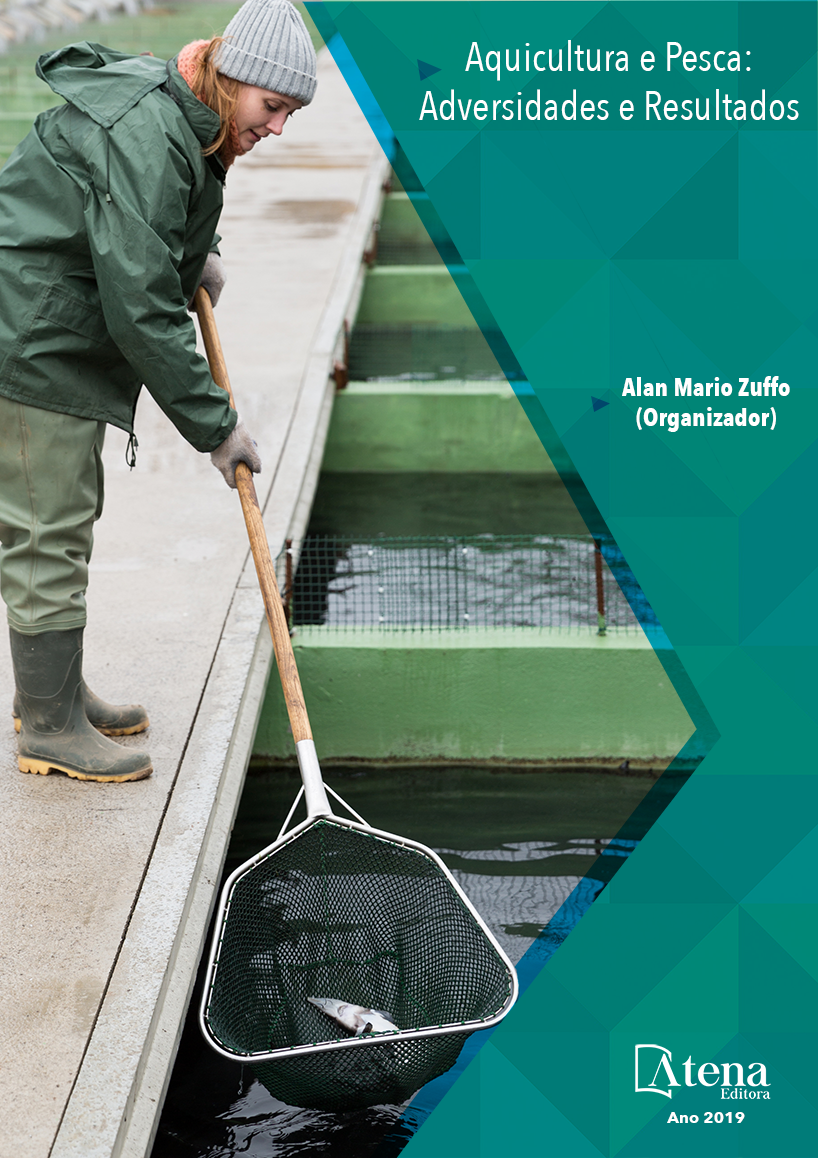
QUALIDADE DA CARNE MECANICAMENTE SEPARADA (CMS) DE GUAIVIRA Oligoplites saliens (Bloch, 1793)
A segurança e a qualidade
dos alimentos são tópicos importantes da
atualidade. Nesse contexto, o trabalho
objetivou caracterizar a qualidade da Carne
Mecanicamente Separada-CMS de guaivira e
diagnosticar a sua estabilidade físico-química
sob armazenamento à -18ºC. Exemplares de
guaivira foram processados utilizando-se a
tecnologia da CMS. Utilizou-se metodologias
oficiais ou reconhecidas para as análises físicoquímicas. A CMS apresentou partículas ósseas
evidentes e a umidade variou de 82,26% a
82,76%. Para cinza o maior teor foi 0,83%. A
CMS apresentou teor de proteína moderada,
13,42% à 14,01% e lipídios abaixo de 5%,
classificando-a como magra. As BVT e TBA
apresentaram teores reduzidos, indicando a boa
qualidade da CMS. Para BVT o teor máximo foi
7,92 mg N/100g e para TBA 0,13 mg MDA/kg.
O odor de ranço não foi detectado. Quanto ao
pH, oscilou de 6,30 a 7,51. A textura apresentou
valores de firmeza reduzidos, de 0,13 à -0,02
N. A Força de Ruptura (122,97 a 198,05N)
e de Cisalhamento (1340,44 mm à 1998,54
mm) indicaram maior resistência ao corte.
Para a cor instrumental, L* apresentou valores
maiores pós-cocção, com leve tendência a
redução durante estocagem. Os valores de b*
e a* apresentam-se superiores pós-cocção, os
valores de b* evidenciam a reação de Maillard.
A CMS de guaivira apresentou-se magra e
com bom aporte proteico, mantendo-se estável
durante o armazenamento à -18ºC, entretanto a
espécie não se mostrou adequada à tecnologia
de obtenção da CMS, sendo necessário
investigar outras tecnologias para o melhor
aproveitamento e valorização da espécie
Oligoplites saliens.
QUALIDADE DA CARNE MECANICAMENTE SEPARADA (CMS) DE GUAIVIRA Oligoplites saliens (Bloch, 1793)
-
DOI: 10.22533/at.ed.27219290315
-
Palavras-chave: segurança alimentar e nutricional, aproveitamento integral do pescado, consumo.
-
Keywords: food safety and nutrition, use all of fisheries, consumption.
-
Abstract:
The safety and quality of food are
important topics of today. In this context, the
objective was to characterize the quality of the
Meat Mechanically Separated-CMS of guaivira
and to diagnose the stability of its physicochemical under storage at -18ºC. Copies of
guaivira were processed using the technology
of the CMS. We used methodologies, official, or
recognized for the physico-chemical analyses.
The CMS presented the particulate bone evident and the humidity ranged from 82,26%
82,76%. For grey the highest content was at 0.83%. The CMS presented the protein
content is moderate, 13,42% 14,01% and lipid less than 5%, classifying it as lean. The
BVT and TBA presented levels of reduced, indicating the good quality of the CMS.
For BVT the maximum level was 7.92 mg N/100g and for TBA 0,13 mg MDA/kg. The
odor of rancidity was not detected. As for the pH ranged from 6.30 to 7,51. The texture
showed values of firmness reduced from 0.13 to -0,02 N. The Breaking Force (122,97
the 198,05 N) and Shear (1340,44 mm 1998,54 mm) indicated greater resistance to
cutting. For the color, instrument, L* showed higher values in post-cooking areas, with
a slight tendency to decrease during storage. The values of b* and a* are higher than
the post-baking, the values of b* show the reaction of Maillard. The CMS guaivira
presented lean and with a good contribution to protein remained stable during storage
at -18ºC, however the species was not found to be appropriate to the technology of
obtaining of the CMS, being necessary to investigate other technologies for the better
use and valuing of the species Oligoplites saliens.
-
Número de páginas: 15
- Érika Fabiane Furlan
- Mayumi Oshiro Costa


